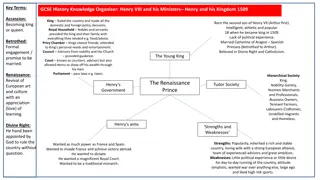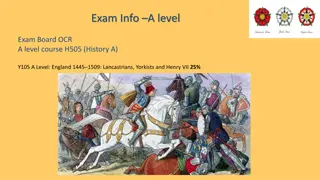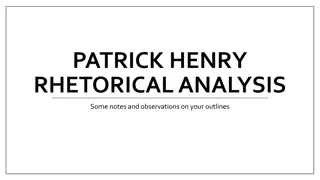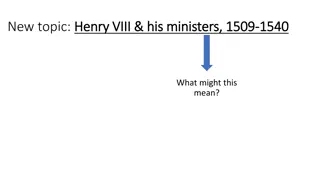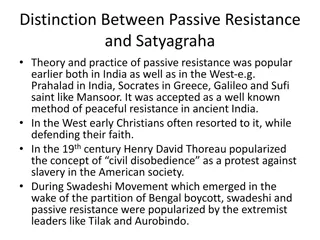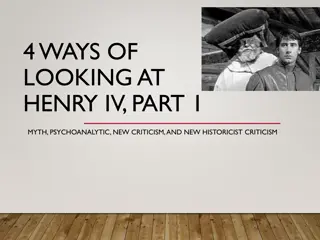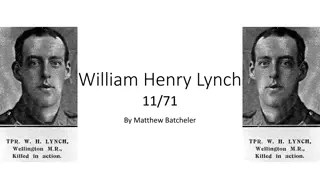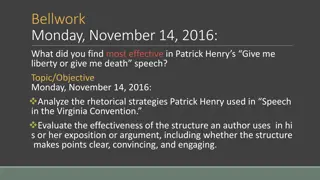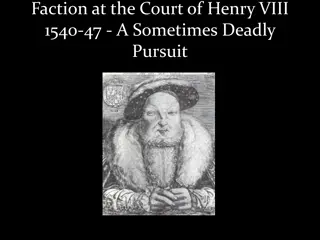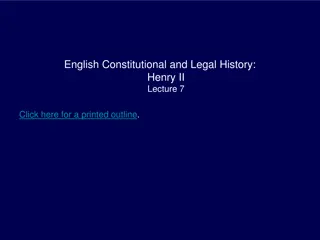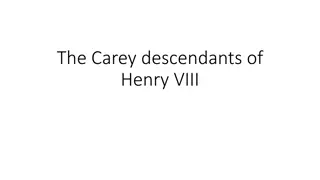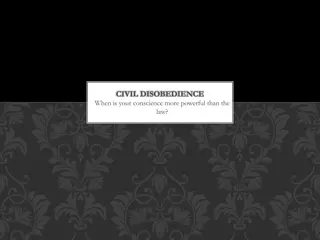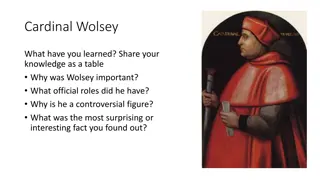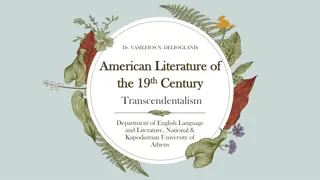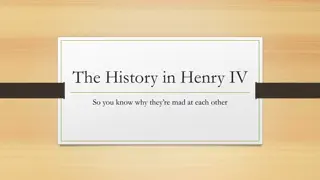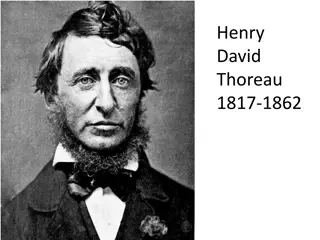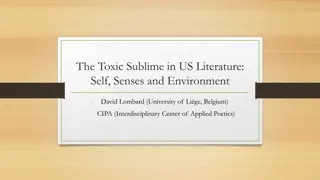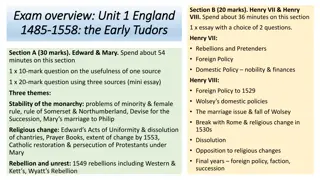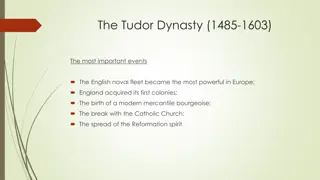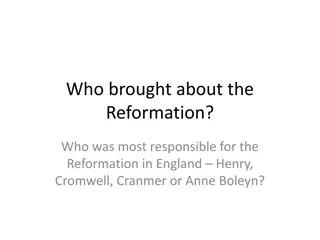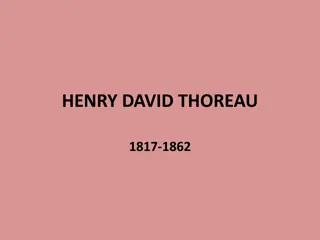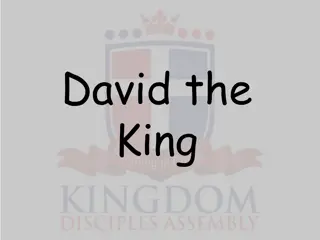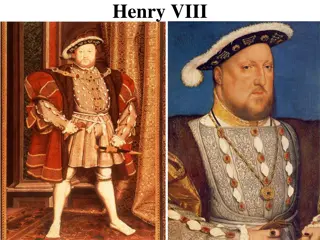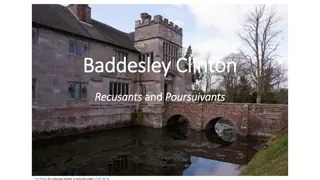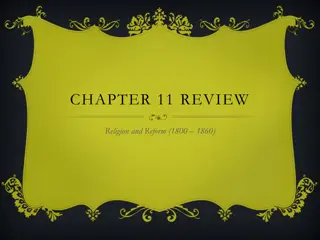Exploring Genuine Bequest Wonders: A Chronicle with David Litt Realty
Set out on a transformative enterprise with David Litt Real Estate. Connect David Litt, a visionary in a genuine domain, as we unwind the special strategies that have cemented his bequest. From vital advertising experiences to personalized encounters, investigate the uncommon world of David Litt Rea
8 views • 2 slides
Tommy Hilfiger Henry ja Muiden Miesten Kellojen Maailma Salkarilla
Tervetuloa Salkarin kellojen maailmaan, jossa laatu ja tyyli kohtaavat. Olemme ylpeit\u00e4 esitell\u00e4ksemme laajan valikoimamme Tommy Hilfiger Henry -kelloja ja muita miesten kelloja, jotka t\u00e4ydent\u00e4v\u00e4t tyyli\u00e4si ja tuovat persoonallisuuttasi esiin.\nTommy Hilfiger Henry -kello
1 views • 3 slides
The Benefits of Silence
In a society obsessed with constant noise and distraction, the value of silence is often overlooked. Silence has the ability to promote deep thought, self-reflection, and inner peace. Through quotes from renowned authors like Henry David Thoreau and Orhan Pamuk, the article explores how silence can
0 views • 23 slides
Henry VIII and Cardinal Wolsey: Key Figures in Tudor England
Henry VIII, a key monarch in Tudor England, ruled with ambition and a desire for power and glory. His reign saw a close relationship with Cardinal Wolsey, his chief minister, who rose from humble beginnings to become a powerful figure in both domestic and foreign policies. Wolsey's reforms and influ
0 views • 13 slides
Wars of the Roses (1445-1461): Source Analysis on the Downfall of Henry VI
This content delves into the Wars of the Roses period (1445-1461) in England, focusing on the outbreak of conflicts, political turmoil, and the downfall of Henry VI. It includes an inquiry topic, sample paper question, and a detailed analysis of a historical source (Source A) by Jack Cade regarding
0 views • 16 slides
Analyzing Patrick Henry's Rhetorical Strategies
Explore the effective use of rhetoric by Patrick Henry in his speech to ignite rebellion during the American Revolution. The analysis focuses on his use of allusion, metaphor, and powerful language to convince delegates to engage in war against England.
0 views • 8 slides
Basics of Fingerprinting Classification and Cataloguing
Fingerprint classification is crucial in establishing a protocol for search, filing, and comparison purposes. It provides an orderly method to transition from general to specific details. Explore the Henry Classification system and the NCIC Classification, and understand why classification is pivota
5 views • 18 slides
Tudor England: Henry VIII and His Ministers, 1509-1540
Explore the reign of Henry VIII and his key ministers, including Cardinal Wolsey and Thomas Cromwell, from 1509 to 1540. Dive into the political dynamics, the influence of the Reformation, and the societal landscape of Tudor England during this transformative period.
0 views • 22 slides
Comparison between Passive Resistance and Satyagraha Theories
Passive resistance was used historically by figures like Gandhi, Thoreau, and early Christians for peaceful resistance. Satyagraha, introduced by Gandhi, differs by being a weapon of the strong focusing on love, self-realization, and unity rather than opposition and physical force. It emphasizes spi
2 views • 11 slides
Exploring Different Perspectives on Henry IV, Part 1 Through Myth, Psychoanalytic, New Criticism, and New Historicist Criticism
Delve into various critical lenses such as myth, psychoanalytic, New Criticism, and New Historicist Criticism to analyze Henry IV, Part 1. Uncover the mythic origins of characters like Falstaff, connections to ancient rituals, and the symbolism of killing the king. Discover how literature intertwine
4 views • 26 slides
The Remarkable Story of William Henry Lynch: Gallipoli Hero
Born in Wellington in 1895, William Henry Lynch enlisted in the army in 1914, embarking on a journey from New Zealand to Gallipoli, where he tragically lost his life in the Battle of Chunuk Bair in 1915. Despite dental issues, Lynch fought with valor as part of the Wellington Mounted Rifles, represe
0 views • 10 slides
Understanding Civil Disobedience Through Thoreau's Perspective
Explore Henry David Thoreau's views on civil disobedience by delving into key passages from his writing, dissecting his ideas on government authority, the basis of a free society, and the irony he points out about his night in jail. Engage in group discussions, analyze DOK levels of questions, and u
1 views • 21 slides
Overview of Fingerprint Classification and Cataloguing Methods
Explore the basics of fingerprint classification, including Henry Classification and NCIC Classification systems. Learn about the importance of classification in establishing protocols for searching and comparison. Discover the components of Henry Classification, such as primary, secondary, sub-seco
1 views • 21 slides
Analysis of Henry VIII's Foreign Policy Success and Failure
An overview of Henry VIII's foreign policy up to 1547, discussing the shift in his approach during the 1530s and the revival of ambitions in the 1540s. The content explores traditional and revisionist views on Henry's foreign affairs, including his involvement in Scotland and France, alliances with
0 views • 34 slides
Analyzing Rhetorical Strategies in Patrick Henry's Speech
Explore the effective rhetorical strategies used by Patrick Henry in his influential speech "Give me liberty or give me death" delivered at the Virginia Convention. Dive into the structure and persuasive elements of the speech to understand its impact on the audience and its historical significance.
0 views • 16 slides
Faction at the Court of Henry VIII (1540-1547): A Deadly Pursuit
The court of Henry VIII from 1540 to 1547 was embroiled in deadly factional struggles, including instances of adultery, heresy accusations, and power plays. Various episodes reveal the intricate web of alliances and betrayals among reformers, conservatives, and key figures like Catherine Howard, Gar
0 views • 8 slides
Exploring Henry II's Reign: Administrative and Legal Changes
The lecture delves into the reign of Henry II, highlighting key events, motivations for changes, administrative reforms, and changes in legal remedies. It covers topics such as the conflict between regnum and sacerdotium, motivations behind Henry II's actions, events during his reign like the Treaty
2 views • 27 slides
Descendants of Henry VIII: An Intriguing Family Tree
Explore the fascinating lineage of the Carey descendants of Henry VIII through the Knollys and Hunsdon lines, tracing notable figures such as Robert Devereux, 2nd Earl of Essex, and Algernon Sidney. The detailed narrative spans generations, highlighting key marriages, titles, and historical connecti
0 views • 14 slides
Understanding Romanticism and Transcendentalism in Early American Literature
Exploring the defining characteristics of American Romanticism, such as a focus on nature, individualism, and self-reliance, alongside the beliefs and teachings of Transcendentalists like Thoreau and Emerson. Contrasting these literary movements as reactions to established norms and traditions, emph
0 views • 16 slides
The Power of Civil Disobedience Throughout History
Explore the significance of civil disobedience in challenging unjust laws and promoting social change through historical events like the Boston Tea Party and Thoreau's stand against slavery. Learn how individuals have leveraged their conscience to defy immoral laws and spark movements for justice, i
0 views • 14 slides
Cardinal Wolsey: The Influential Figure in Tudor England
Cardinal Wolsey was a significant figure in Tudor England, holding various official roles such as Lord Chancellor and Chief Minister to King Henry VIII. He was appointed Cardinal in 1518, wielding both religious and political power. Wolsey's controversial nature stemmed from his influence on the Pop
0 views • 17 slides
Transcendentalism and American Individualism in the 19th Century
Explore the essence of Transcendentalism through the works of Ralph Waldo Emerson and Henry David Thoreau, focusing on self-reliance, spiritual vision, and resistance to societal norms. Delve into their philosophical perspectives on the unity of the world, individualism, and the pursuit of a higher
0 views • 13 slides
The Intrigues and Battles in Henry IV: A Dramatic Saga
The play Henry IV, Part 1, delves into the real battle of Shrewsbury where King Henry IV's forces clash with rebels vying for the crown, notably led by Hotspur. Meanwhile, Prince Hal, the king's son, navigates tavern intrigues to expose Falstaff's deceit. The narrative unfolds with conflicts, decept
0 views • 14 slides
Influence of Thoreau's Civil Disobedience on Gandhi and Martin Luther King Jr.
Gandhi's encounter with Henry David Thoreau's essay "Civil Disobedience" while in jail in South Africa sparked his implementation of nonviolent resistance called Satyagraha. This powerful concept of refusing to cooperate with injustices was adopted by Martin Luther King Jr., who considered Thoreau's
0 views • 22 slides
Exploring the Toxic Sublime in US Literature
Investigating the aesthetic dimensions of Thoreau's environmental philosophy and its capacity to blur boundaries between natural and technological landscapes, David Lombard's research delves into the concept of the toxic sublime in literature. By redefining the sublime for the Anthropocene era, the
0 views • 10 slides
Journey of Henry: The Million Pound Bank Note
Henry's journey takes unexpected turns as he is entrusted with a million-pound bank note. From being treated poorly to experiencing a change in attitudes, Henry faces challenges and surprises. Follow his adventures through encounters at a tailor's shop and beyond.
0 views • 8 slides
Turbulent Times: The Revival of Learning (1400-1550) through Political Upheaval
The period from 1400 to 1550 saw significant political and literary changes, with upheavals in monarchies such as Henry V, Henry VI, Richard III, and Henry VIII. Henry V's quest for power led to the Battle of Agincourt in 1415 and the Treaty of Troyes. His death in 1422 marked the end of a turbulent
0 views • 6 slides
Tudor Rule: Challenges and Policies of Henry VII and Henry VIII
The Tudor monarchs, Henry VII and Henry VIII, faced various challenges such as rebellions, foreign policy issues, financial management, and religious changes. This content explores the threats to Henry's rule from Yorkist challenges, the success of Henry VII's financial policies, handling of the nob
0 views • 11 slides
The Tudor Dynasty (1485-1603): Key Events and Figures
The Tudor Dynasty (1485-1603) marked significant events in English history, including the rise of the powerful English naval fleet, acquisition of colonies, birth of the mercantile bourgeoisie, break with the Catholic Church, and spread of the Reformation spirit. Economic changes saw the transition
0 views • 5 slides
Week 3 English - Informal Letter Writing Lesson
Explore the story of "Care of Henry" by Anne Fine, focusing on the main characters Hugo, Henry, Mum, and Grandma. Dive into writing an informal letter pretending to be Henry, detailing his activities at Grandma's house. Learn about informal letters, their types, and get inspired by an example letter
0 views • 22 slides
Key Players and Events in the English Reformation
Explore the key figures and events that shaped the English Reformation, including Henry VIII, Cromwell, Cranmer, and Anne Boleyn's roles in the break with Rome. Analyze the significance of Katherine of Aragon's refusal to accept divorce, Cromwell's influence, and Henry VIII's desires. Evaluate why A
0 views • 6 slides
Henry and Beezus by Beverly Cleary - Book Summary
This book follows the story of a boy named Henry who really wants a bike but his parents can't afford one. With the help of his friends, Henry tries various ways to earn money. From finding boxes of gum to selling coupons, Henry's journey to get his dream red bike is full of ups and downs, laughter,
0 views • 5 slides
Insights from Henry David Thoreau's Walden
Explore the profound philosophy of Henry David Thoreau through his experiences at Walden Pond. Discover his thoughts on living deliberately, embracing wildness, and acquiring a unique perspective on life through nature and solitude.
0 views • 14 slides
Word Play on Saul and David in 1 Samuel
Explore the intricate wordplay surrounding Saul and David in 1 Samuel, where Saul seems to not recognize David despite their previous interactions. Delve into the themes of grief, rejection, and divine providence as the narrative unfolds to reveal God's chosen king. Samuel's discernment, Saul's turm
0 views • 30 slides
Exploring the Heart of King David: A Legacy of Strength and Struggles" (78 characters)
Delve into the profound legacy of King David, a complex biblical figure who embodied strength and flaws. Despite imperfections, David's heart and devotion to God set a remarkable example for future kings. Discover the significance of being kings and priests, following in David's footsteps, and the e
0 views • 14 slides
The Intriguing Lives of Henry VIII and His Six Wives
Henry VIII, known for his break from the church, had six wives - Catherine of Aragon, Anne Boleyn, Jane Seymour, Anne of Cleves, Kathryn Howard, and Katherine Parr. Each wife had a unique story, from Catherine's tumultuous marriage to Anne Boleyn's tragic fate, Jane Seymour bearing a son, Anne of Cl
0 views • 9 slides
The Tudor Dynasty: Henry VIII, Reformation, and the Creation of the Church of England
Explore the rich history of the Tudor dynasty with a focus on Henry VIII, the Protestant Reformation in Europe, and the pivotal creation of the Church of England. Learn about key events such as Henry VIII's marriages, his quest for a male heir, the beginnings of Protestantism in England, and the est
0 views • 11 slides
The True Confession of King David: A Man After God's Own Heart
Discover the story of King David, a man known for his worship of God but also for his moral failings. Despite his esteemed position, David succumbed to temptation, leading to a series of sinful actions that resulted in grave consequences. Explore the themes of confession, repentance, and the costly
0 views • 19 slides
David Copperfield: A Tale of Childhood and Transformation
The story of "David Copperfield" unfolds from his childhood at Blunderstone Rookery to his encounters with characters like Uriah Heep, Betsey Trotwood, and Peggotty. Despite a happy upbringing, David's life takes a turn with the arrival of Mr. Murdstone, leading to profound changes. As he navigates
0 views • 22 slides
Religion and Reform: 19th Century Ideologies and Movements
Explore the influence of individualism through transcendentalism, rural communalism, and urban popular culture in the 1800s. Delve into the ideologies of Ralph Waldo Emerson, Henry David Thoreau, Margaret Fuller, and Walt Whitman. Learn about utopian societies, the Mormon experience, and nativist mo
0 views • 15 slides



